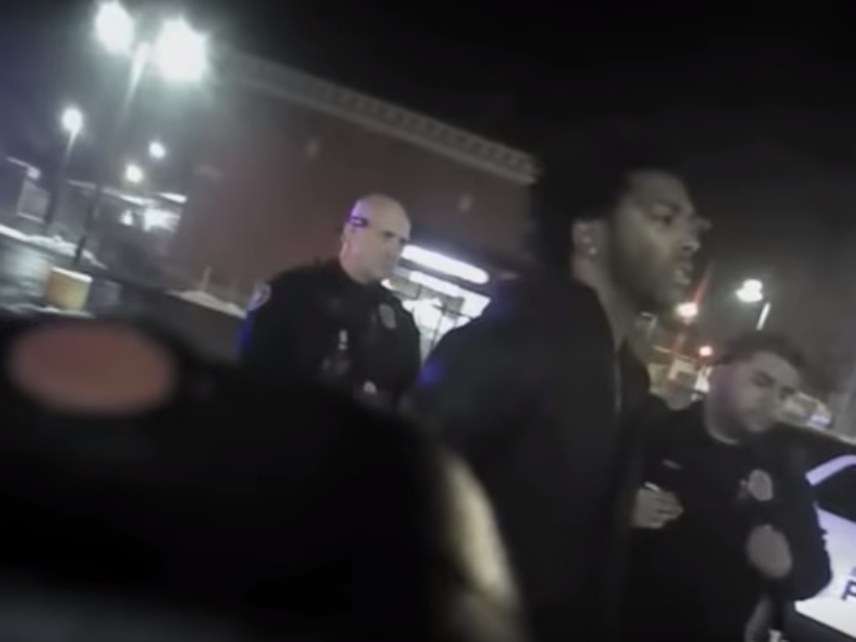Body Camera Footage Highlights Both Goofus and Gallant Police Conduct
Officers in Milwaukee caught tormenting an NBA player over parking, while a Texas trooper is cleared of accusations of sexual assault due to video.

Milwaukee Bucks rookie guard Sterling Brown pulled one of the dickish of dick parking moves by parking his car across multiple handicapped parking spaces in front of a Walgreens in Milwaukee in January.
The result was not a ticket and a good talking-to from a police officer, but a bizarre escalating confrontation fed pretty much entirely by police bluster that would have been comical had it not ended in Brown being suddenly Tasered and piled on by a pack of officers who were called to the scene for no reason.
The entire incident was caught on police body camera. That footage was released this week, along with an apology from Milwaukee Police Chief Alfonso Morales, who said the officers "acted inappropriately" and have been disciplined.
The incident is an illustration of how what should be simple, peaceful police encounters spin wildly out of hand because of the aggression of the officers. It also highlights exactly what people mean when they talk about disproportionate responses from police when they deal with them. Lastly, it underscores the value of police body cameras when making these points. The police officers initially claimed that Brown had threatened them, but Brown does nothing remotely threatening on the video.
Instead, the officer who confronted him, and was angry at him from the start, called in backup that brought in six other police vehicles and seven additional officers. Brown was surrounded in minutes by officers. Then after insisting he take his hands out of his pockets, they tackle him and Tase him.
Watch the video footage below:
Sterling was ultimately not charged with any crime and he played in a game that day with a banged up face. The Bucks organization put out a statement supporting Brown and calling his treatment "shameful and inexcusable."
It's very easy to imagine how differently this incident would have played out had it not been captured on camera. The very basic info that would have been released—that Brown had deliberately been an ass when he parked and that several police cars were called out to deal with him—would have purposefully stacked the deck against Brown in the public's perception. That we could see for ourselves that the officer who responded was being a jerk for no reason and called in an absurd amount of additional police for no reason establishes some important context.
It's also important to note when body camera footage protects police from unfounded accusations, as just happened in Ellis County, Texas. A state trooped pulled a woman over last weekend and arrested her after she failed a sobriety test. The woman, Sherita Dixon-Cole, accused the trooper of sexually assaulting her during the stop, and those accusations were pushed by the attorney she retained, Lee Merritt, who even scheduled a press conference to discuss what happened.
But then the Texas Department of Public Safety released two hours of the officer's body camera video showing that nothing even remotely inappropriate happened during the course of her arrest and police detention. Merritt subsequently put out a press release taking responsibility for amplifying the case into a national story and apologizing for the trouble caused by the false accusation.
Body camera footage both alerts us to bad police misconduct but also shields police who behave appropriately from a host of false claims. Again, consider how these accusations might have played out for the officer in this case had the footage not been available. People were instantly believing the accuser based on nothing but her claims.


Show Comments (65)